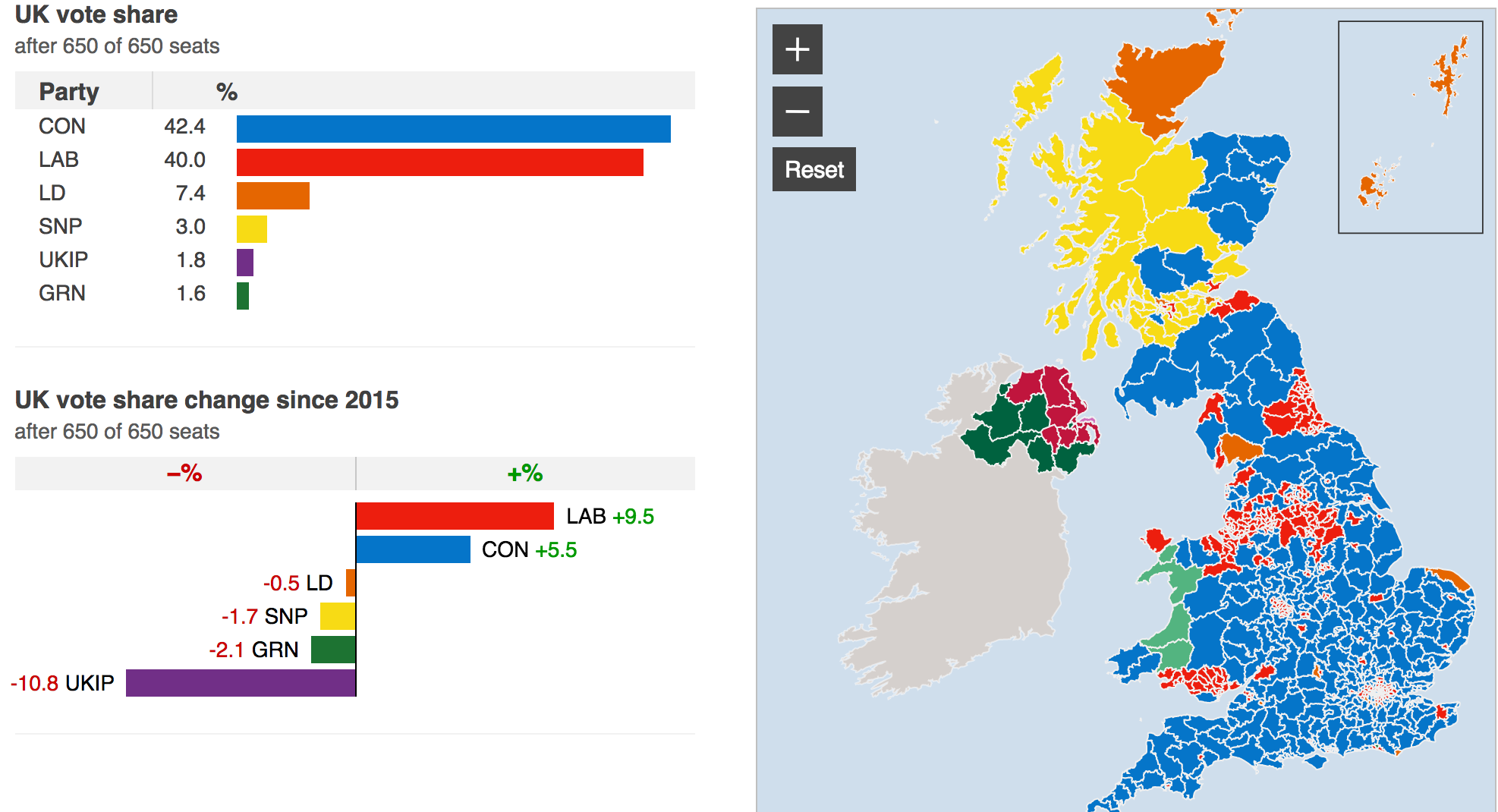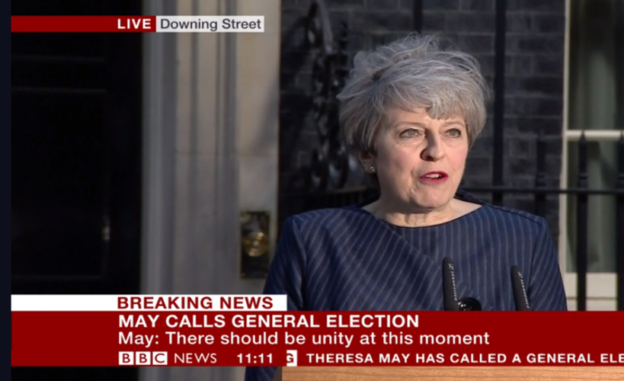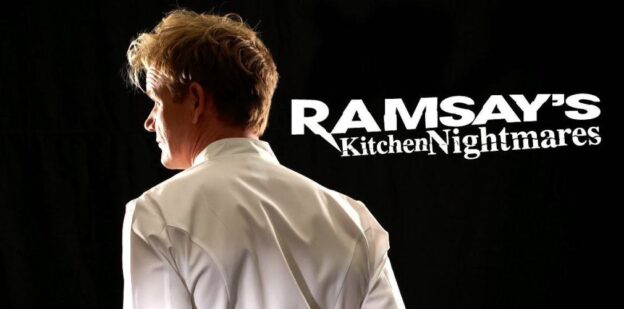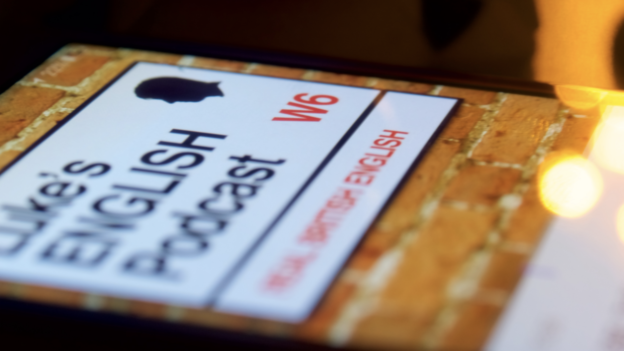Hello listeners, this episode is all about superstitions. Every country and culture seems to have particular superstitions. They can be quite a large part of the life or culture of that place. For example, if you’ve been living in a different country for a while, you’ve probably noticed that certain things are part of the common belief system, and that will no doubt involve some superstitions. Even if you don’t really believe in them, it’s quite useful to know about the main superstitions in a country, so that you can avoid doing something wrong (like opening an umbrella indoors in the UK) or you can just follow what is being talked about and understand all the reference points in conversation, and perhaps add your own comments as part of every day conversation – such as using expressions “touch wood” or “fingers crossed” – both of which are very commonly used phrases which are connected to superstitious beliefs. Now, since Luke’s English Podcast tends to focus on all things British or all things UKish – what are the top superstitions in the UK? What are those things that many people in the UK follow as every day superstitions? Well, in this episode I’m going to go through a list of 13 superstitions, unlucky for some, which are commonly held in the UK. We’ll also consider where these superstitions come from and why people still hold on to them. Join me! And in the comments section you can tell me if you share these superstitions in your countries, what the most common superstitions are where you come from, and generally what you think about superstitious beliefs.
 [DOWNLOAD] [FREE AUDIOBOOK OFFER]
[DOWNLOAD] [FREE AUDIOBOOK OFFER]
A lot of what you are hearing is written on the page for this episode at teacherluke.co.uk. If you want to do some studying, you most certainly can. You can check the script – compare what you heard with what you can see. Check out new words, add them to a vocabulary bank, repeat certain phrases after me, record yourself reading parts of the transcript and then compare them with me, or record yourself repeating the transcript, or simply record yourself speaking freely and then listen back to it for some perspective. That can be a good way of self studying with Luke’s English Podcast. Or, if you prefer, you can just sit back, brew a cup of tea or whatever, and enjoy listening to another episode of this podcast! If you fancy making a donation to reward me for my hard work and dedication – you can. There are donate buttons on the page for this episode. Also, don’t forget to take advantage of that offer from Audible – go to audibletrial.com/teacherluke to sign up for a 30 day trial membership. They’ll let you download one audiobook for free. If you don’t like Audible you can just cancel the membership, and keep the audiobook for free! I’ve been recommending some popular books, but they have about 180,000 titles to choose from so you can just explore the website to find out – but remember, if you’d like to get that 30 day free trial, do it by visiting audibletrial.com/teacherluke. Alright, let’s carry on talking about superstitions.
What’s a superstition?
It’s the belief in unnatural causality – the idea that one thing causes another thing to happen, even though there is no scientific evidence to explain it, for example the idea that crossing your fingers helps to bring good luck, or the idea that if you talk about the devil he will magically appear. These are ‘leaps of faith’ – beliefs that require you to suspend your need for evidence and just believe something that has no rational explanation, and so many of us make leaps of faith on a daily basis – some more than others, but even the most rational person can be influenced by superstitious beliefs and behaviour.
I don’t believe in superstitions because I like to believe I’m a modern, scientifically minded person. But saying that, I do find that from time to time my behaviour betrays my rational thinking. For example, I don’t like to open umbrellas in the house, walk under ladders, and I often will touch something that’s made of wood and say “touch wood” to avoid tempting fate. I can’t help it! I know that there’s no evidence that superstitions are real, but sometimes I just can’t help acting on some superstitious beliefs. Of course, I’m not the only one.
So, let’s consider the UK’s most common superstitions, and of course I would be delighted if all of the LEPsters in different countries around the world shared their superstitions too. What are the superstitions in your countries? What do you think of the superstitions I’m describing in this episode, and generally – do you believe in any superstitions? Why? Share your thoughts and practise your English too.
Here’s a list of the UK’s most common superstitions, with some explanations too.
 1. Magpies
1. Magpies
What’s a magpie?
Black and white birds
Quite big, long tail
Related to crows (corvid family)
Quite noisy
They steal shiny things.
Magpies have different superstitions based on how many you see, as this 18th century poem explains:
One for sorrow
Two for joy
Three for a girl
Four for a boy
Five for silver
Six for gold
Seven for a secret, never to be told
This relates to the number of magpies you see. Most people know at least the first two lines of the rhyme.
I’m not superstitious, but even I find that if I see one magpie, I often will look around and try to find another one to make myself feel better.
2. Mirrors
Watch out when you’re moving house or doing some DIY and you break a mirror – if that happens you’ll get 7 years of bad luck.
What’s weird about mirrors? Why are we superstitious about breaking them?
Mirrors were once believed to be windows into other worlds – often worlds where things were the wrong way around.
People may also have been frightened that a person’s reflection shatters when a mirror is broken.
One theory is that mirrors contained a person’s soul, so if you break the mirror, you break the person’s soul.
People used to believe some pretty stupid stuff!
It just shows, that superstitions come from our general fear and mistrust of things we don’t understand. If it’s amazing and unexplained, then people are likely to make up all kinds of stupid stuff, e.g. those superstitious emails. http://www.pandasecurity.com/mediacenter/social-media/if-you-break-the-chain-you-will-have-bad-luck-for-the-rest-of-your-life/
Some people also believe that mirrors should be covered up during births and funerals, for fear the person’s soul might escape through them to another realm.
There’s also an urban myth that if you look into a mirror and say “bloody mary” three times, you’ll conjure up the ghost of a woman called Bloody Mary. This comes from old folklore – http://en.wikipedia.org/wiki/Bloody_Mary_(folklore)
3. Umbrellas
Is it a surprise that there’s a superstition related to umbrellas in the UK?
Can you guess what the superstition is?
You might be thinking something like this: “If you don’t bring an umbrella when you go out, it’s unlucky”.
That’s not exactly right.
The myth is that it’s unlucky to open an umbrella indoors. This is probably related to the fact that umbrellas used to be quite awkward, large and difficult to open, and since our houses used to be quite small and cramped, there was a chance that you’d break something, or knock something over with an open umbrella in the house.
So, be aware that if you come into a house or building in the UK and leave your umbrella open, perhaps on the floor to dry off, the Brits might be stressing out quietly.
Again, this is still something that I can’t help feeling slightly uncomfortable about when I see, which is not logical, but it’s hard to completely escape these superstitious feelings.
On the subject of umbrellas – another cultural myth is that Brits always have umbrellas with them. That’s not exactly true.
Equally, I’ve met plenty of foreigners who are surprised that we don’t all carry umbrellas – they are surprised by the frequency with which we get caught in the rain. I think this is due to the unpredictability of British weather. It’s hard to be prepared all the time!
4. Crossed fingers
This is a way to ensure that lucky things will happen. It really means “Let’s hope it happens!” or “Let’s hope for good luck”.
“Fingers crossed!” = good luck!
“I’m keeping my fingers crossed for you today!”
Also, crossing your fingers is considered a way to get away with telling a lie. This isn’t related to the good luck superstition.
For example, if someone says “I won’t tell anyone” but they secretly have their fingers crossed behind their back, it means that they’re lying!
Is it the same in your country?
5. Don’t step on the pavement lines.
When we were kids we used to say “Don’t step on the cracks or the bears will get you”. What bears?!
Why is it necessary to tell kids that there are wild animals waiting around the corner, who hate it when you step on the cracks between paving stones?
Truth be told – I think we never really believed the thing about the bears. It was just part of a game where you had to avoid walking on the cracks.
When we were kids we used to make up those kinds of games all the time. Not for superstitious reasons, but just for fun. That’s what kids do. For my brother and me it was always sharks and lava. We used to put cushions on the floor between the chairs and the sofa, and those cushions were little stepping stones or islands. All the carpet between the cushions was either lava or shark infested waters. If you so much as stepped on the carpet you’d be killed by the lava or eaten by the sharks. Then we’d run around climbing and jumping on the sofa, chairs and cushions. Good times.
Back to the superstition…
Another rhyme is:
‘Don’t step on a line or you’ll fall and break your spine! Don’t step on a crack or you’ll fall and break your back!’
It seems that bad luck is waiting everywhere for you! Just walking down the street in the wrong way can cause you to have a serious injury or even worse to be attacked by dangerous animals.
Reasons:
Cracks in the pavement can be dangerous. You could trip and fall. Could you really break your spine?
In the past, the pavement was probably less even or safe than now. Today you can even sue the council for an accident caused by an uneven pavement.
6. Numbers
What list of superstitions would be complete without something about numbers?
Lucky and unlucky numbers are common in many countries and cultures – and the UK is no exception.
Seven is usually seen as the luckiest number. Here’s some info on that from PsychicLibrary.com http://psychiclibrary.com/beyondBooks/lucky-number-7
By far the unluckiest number is of course 13 – especially the date Friday 13th. This goes back to the Christian belief that the 13th person at the Last Supper with Jesus was Judas, who betrayed him and led him to be crucified, and ‘unlucky Friday’ was the day Jesus died.
13 is such a powerful superstition that many hotels don’t have a 13th floor, football players don’t like to wear the number 13 and some people even take a day off work to avoid going outside on the 13th.
More details about 13 http://mentalfloss.com/article/23266/13-reasons-people-think-number-13-unlucky and here http://www.writing.ucsb.edu/sites/secure.lsit.ucsb.edu.writ.d7/files/sitefiles/publications/2014%20Narula.pdf
Here is some interesting stuff I found from the pages linked above.
There’s a Norse legend that has 12 gods sitting down to a banquet when the 13th (uninvited) god, Loki, shows up. Loki killed one of the other gods, which led to events that eventually resulted in Ragnarok — the death of a bunch of gods, a slew of natural disasters, and the eradication of everything on earth save for two human survivors. There’s a lot more to the story than that, but you get the general idea.
Traditionally, there used to be 13 steps leading up the gallows. There’s also a legend that a hangman’s noose traditionally contained 13 turns, but it’s actually more like eight.
Apollo 13 is the only unsuccessful moon mission (intended to get men on the moon, anyway) thus far. An oxygen tank exploded and the survival of the astronauts on board was pretty touch-and-go for several days, but they did all come home safely in the end (but you already knew that).
There’s an old superstition that says if you have 13 letters in your name, you’re bound to have the devil’s luck. Silly, yes, but slightly more convincing when you consider that Charles Manson, Jack the Ripper, Jeffrey Dahmer, Theodore Bundy and Albert De Salvo all contain 13 letters (I know, I know, what about their middle names?).
Kids officially become teenagers at the age of 13, and we all know that’s a scary phase.
There may also be a mathematical theory behind it too.
Throughout history, the number twelve has long been connected to the idea of “completeness.” There were twelve gods on Mount Olympus, twelve signs of the zodiac, twelve months in a year, and twelve apostles. Therefore, people viewed 13 as 12+1, or “completeness plus one” (Lachenmeyer 24). This idea of being one away from completeness gave people a sense of uncertainty and unpredictability; thus they associated the number 13 with these feelings (Lachenmeyer 24).
Generally, the whole idea of superstition is fascinating to me. Why do we believe in these things, even when we know they’re not true? Or is there some actual truth in it? For example, if you stay in room 13 in a hotel, are you more likely to experience bad luck? Is this just the placebo effect? I mean, if you feel you’ve been cursed by bad luck, will you be more likely to accept bad things happening to you?
Let’s look at some possibilities.
John Smith stays in room 13. He’s superstitious.
He then believes he’s been cursed.
When he’s driving he’s sure that he’s going to have an accident.
This expectation leads him to somehow make it happen – he subconsciously proves his thinking to be correct.
It sounds like nonsense to me.
Here’s another idea.
John stays in room 13 and is superstitious.
He then drives in his car the next day and has an accident. Someone pulled out of a junction without looking and hit him.
He decides that it happened because of the hotel room he’d stayed in.
But there’s absolutely no evidence to suggest it was the hotel room. It probably would have happened anyway.
However, there’s no way of proving it. We can’t go back in time to do a test.
But John needs an explanation. He doesn’t want to believe that the universe is basically chaotic and random, or at least far more complex than his head can contain.
So, he chooses to believe in the superstition because it makes it easier to live in the world. It’s easier and more comfortable for John to believe in superstition than to know that some things are just completely beyond his control or understanding. It’s not pleasant to know that some things are not within your own control. So the superstition allows him to get some more control. He feels that he can control the chaos slightly. Next time he won’t stay in room 13.
I’m sure this accounts for a lot of our beliefs. We believe things like superstition, conspiracy theories or even god, because it explains unanswered questions and allows us to hide from the fact that the universe is chaotic, unordered and out of our control.
Have a nice day!
Let’s carry on with these superstitions because they’re fun to share!
7. Wishes: birthdays and bones
You’re celebrating your birthday in the UK and your English friends have bought you a cake. That’s not the bad luck – that you have to eat an English cake. No. Actually, our cakes are delicious thank you very much. No, the thing is, there are candles on the cake – of course there are. It’s a birthday cake. Everyone’s singing happy birthday. You have to blow out the candles – but here’s the thing – make sure you blow them all out with one breath because if you don’t – bad luck!
Also, what you really should do is close your eyes and make a wish first, then blow out the candles. If you manage to blow all the candles out with one breath, your wish will be granted. If not, you won’t get your wish. Of course, this has no validity to it at all – it’s just a superstition! But, it’s quite normal for people to say “Make a wish!” before blowing out the candles on a birthday cake.
Why do candles on birthday cakes have magic powers?
It’s not just birthday cakes though, it’s chickens or turkeys too, when they’re cooked for a Sunday roast. There’s a wishbone – it’s at the end of the neck of the bird (where the neck meets the body). It’s forked in shape – with two little bones forking out at angles. The tradition is for two people to hold onto the two bones with their little fingers, close their eyes, make a wish, then pull. The one whose bone doesn’t break (the one who ends up with the bigger piece) will have their wish granted.
8. Weddings
Weddings are already complicated enough because you have to worry about invitations, seating plans, food and wine choices, location, music, vows, transport options, speeches, the dress, the rings, the readings, the RSVPs, children, babysitters, flowers and photographer, but if that wasn’t complicated enough, there are also some superstitions to be aware of.
According to superstition, brides should wear ‘something old, something new, something borrowed and something blue’ as part of their outfit. Something old – could be a piece of old jewellery from a mother or grandmother, something new (obvious), something borrowed (obvious), and something blue (also obvious – it’s the colour). If not – then I suppose the wedding will somehow be cursed.
Then, there are loads of other things including the colour of the dress (one verse goes: ‘Married in white, you have chosen right; married in black, you’ll wish yourself back’), to the day of the wedding
‘Monday for health,
Tuesday for wealth,
Wednesday best of all,
Thursday for losses,
Friday for crosses,
Saturday for no luck at all’
to the things you see on the way to the ceremony (for brides, lambs are lucky but pigs are unlucky; for grooms, policemen and clergymen are lucky).
For more on UK wedding superstitions, click here http://www.corsinet.com/trivia/scary3.html
9. Ladders
Never walk under a ladder in the UK… Apparently it’ll bring bad luck because it used to be associated with walking to the hanging scaffold.
That sounds a bit grim doesn’t it.
The fact is, many Brits will cross the street rather than walk under a ladder, me included.
Perhaps there’s some common sense in this. Someone who is up the ladder might drop something on you.
10. Sneezing
You probably know it’s polite to say ‘bless you’ when someone sneezes in the UK, but did you know the custom might have originated in the sixth century? The theory is that sneezing was seen as the first symptom of the plague, so people would say a blessing to ward off the disease.
Another theory is that people thought sneezing stopped your heart, just for a moment, and saying ‘bless you’ would make sure your heart keeps beating.
11. Keep your shoes off the furniture
And not just because they’re dirty! According to one UK superstition, putting shoes on the table (especially brand new shoes) is bad luck. Some people even avoid putting shoes on chairs or footstools. One explanation is that in coal mining communities, particularly in north England in the 19th century, a miner’s shoes would be placed on the table if he was killed in an accident. The gesture then became a symbol of death.
12. Black cats
Confusingly, black cats can be both lucky and unlucky in the UK, depending on who you ask. Some people say it’s a sign that good things are to come if a black cat crosses your path… while for others, it’s a terrible warning.
How about this: Recently I was walking down the street and a black cat started walking across my path. It stopped and looked at me and got scared and ran away. What does that mean?
13. Rabbits
Rabbits are supposed to be good luck. For some reason keeping a rabbit’s foot will bring you luck. Some people have one in their pocket or attached to their key ring. That’s right – an actual dead rabbit’s foot. Just the foot. You can get fake ones now apparently. Weird isn’t it.
Saying the words ‘white rabbit’ are also supposed to bring good luck, especially at the beginning of the month.
Other things:
– Walking over 2 drains is lucky, but 3 is unlucky.
– Horseshoes
– Egg shells (crack them so the devil can’t make a boat – the devil must be a badass dude if he uses an eggshell as a boat)
– Making eye contact when you say “cheers” – this is growing in popularity, mainly because of the influence of other cultures where this is kind of a big deal.
– “Jinx”, when people say the same thing at the same time by accident, the first one to say “jinx” can avoid the bad luck.
– Lucky underpants
[socialpoll id=”2276734″]


















 1. Magpies
1. Magpies